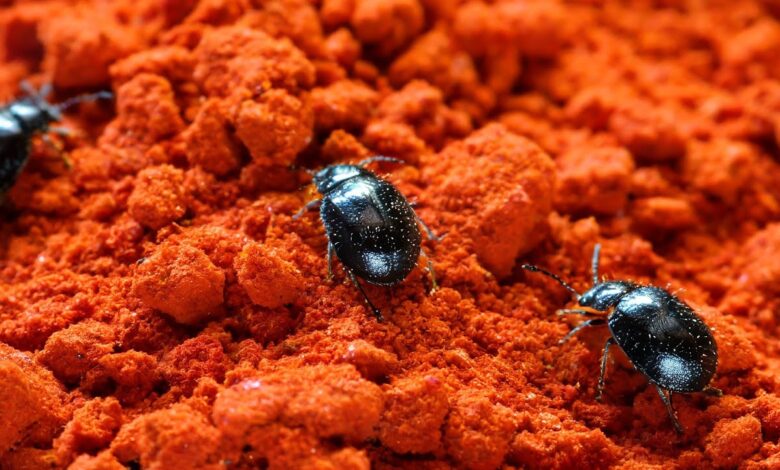
You Won’t Believe What’s Hiding in Your Spice Jar!
Spices are a staple in Filipino kitchens, essential for creating the bold and complex flavors that define the country’s cuisine. But what if these seasonings are hiding an unseen threat? Imagine reaching for your favorite spice, only to find tiny bugs crawling inside the jar. This unsettling reality is more common than you might think, even in the cleanest households.
Meet the Culprits
The primary offenders lurking in your spice jars are the cigarette beetle (Lasioderma serricorne) and the drugstore beetle (Stegobium paniceum). These small, reddish-brown insects, measuring about 2 to 3 millimeters in length, are notorious for infesting a variety of dried food products, including spices like paprika, cayenne pepper, and ginger.
These beetles often infiltrate homes through infested food products purchased from stores or markets. Despite rigorous quality control measures during processing and packaging, some contaminated items can still make their way to consumers. Once inside your home, these pests can spread rapidly, especially if food items are stored improperly.
What Draws Them In
It’s a common misconception that sealed or spotless kitchens are immune to such infestations. Cigarette and drugstore beetles are adept at penetrating packaging materials, including paper, cardboard, and even some plastics. Their small size allows them to exploit tiny openings, making even sealed containers vulnerable. Moreover, these pests can thrive in clean environments if they find suitable food sources.
These beetles are particularly drawn to dried food products with low moisture content, such as spices, grains, and cereals. Their attraction isn’t necessarily due to poor hygiene but rather the availability of suitable food sources. Additionally, their ability to derive nutrients from low-nutrient foods is facilitated by symbiotic gut bacteria, enabling them to infest a wide range of products.
Preventive Measures
To protect your spices from these pests, always check packages for damage or contamination before buying. Transfer your spices to airtight glass or heavy-duty plastic containers to prevent infestations. Buying smaller quantities ensures they are used quickly, reducing the chance of bugs settling in. Keeping your pantry clean by wiping shelves, addressing spills immediately, and discarding old or unused items helps eliminate food sources for pests. As an extra precaution, freezing newly purchased spices for a few days can kill any potential insect eggs or larvae before storage. These simple steps will help keep your spices fresh, flavorful, and pest-free.
READ: Lake Buhi: Home of the World’s Smallest Fish!
By staying vigilant and following these preventive measures, you can keep your kitchen free from these pesky bugs. While spice jar infestations are unsettling, they are manageable with proper storage and cleanliness. Next time you reach for your favorite seasoning, you can enjoy its full flavor—without unwanted surprises.
